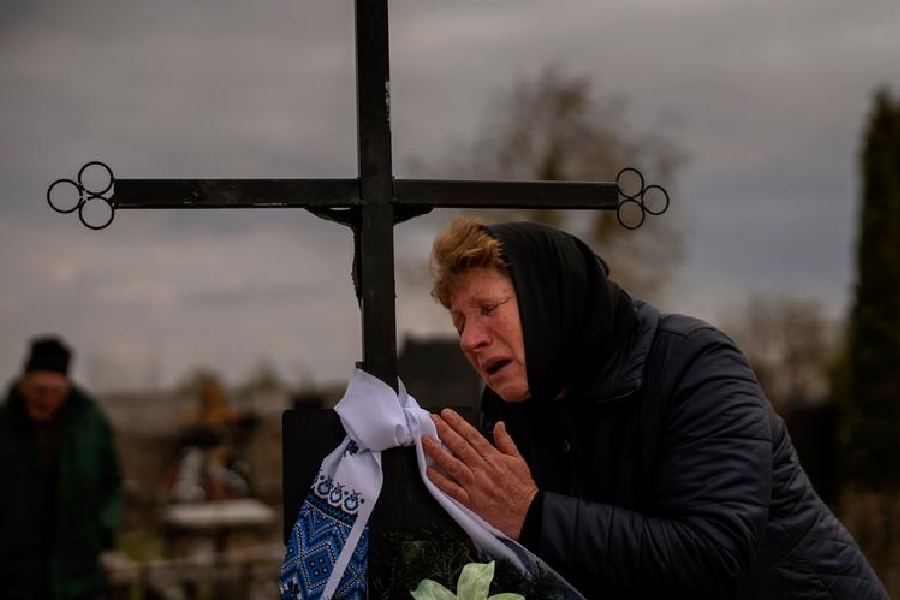A 33-year-old man is accused of a crime. He is arrested, tortured and dies on a cross. His loved ones, including his mother, are forced to watch his torture, powerless to intervene. The darkest chapter in the history of Christianity is described personally and vividly by a witness, the evangelist John, a close friend of the victim.
That is how one could summarize the theme of the "St. John Passion" by Johann Sebastian Bach. The composition, alongside Ludwig van Beethoven's Symphony No. 9, is considered by many to be one of the greatest works of European music ever written.
"Timeless themes make this work so topical and universal," said Michael Maul, a Bach researcher and director of the Leipzig Bach Festival. "Love and compassion. Dealing with betrayal, with grief. You don't have to be a devout Christian or even a Lutheran to feel that."
Ambitious Bach determined to prove himself
Good Friday — April 7, 1724 — was the first Easter that 39-year-old composer Johann Sebastian Bach spent in Leipzig. He had moved to the Saxon city just a year earlier, with his second wife Anna Magdalena, and their four children from his first marriage. He had taken up the position of "Thomaskantor" — becoming director of the 54 choirboys of St. Thomas Church. It was a challenging job, and wasn't always rewarding.
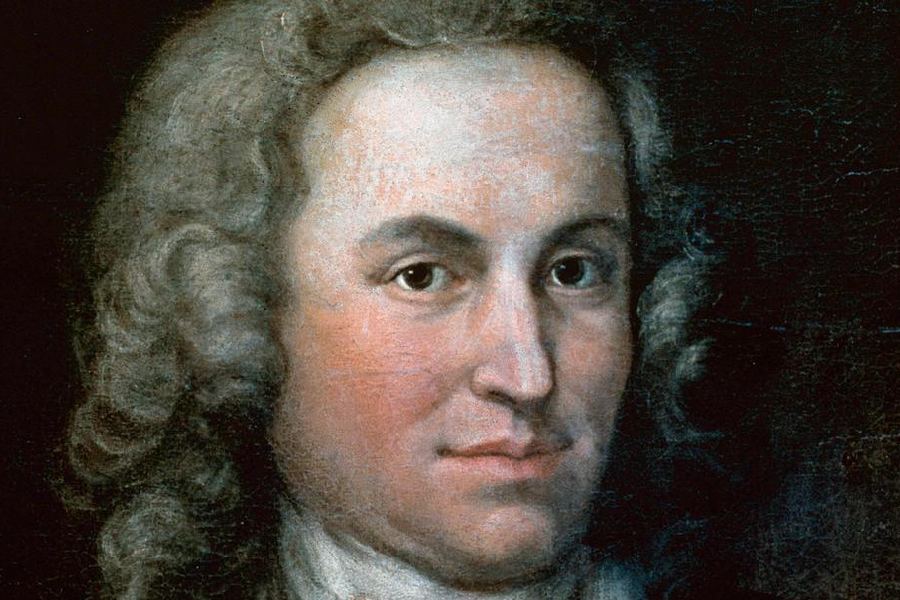
Bach, seen here in a 1715 painting by J.E Rensch the Elder Deutsche Welle
For the people of Leipzig, Bach, who was known as the ex-chapel master of nearby Köthen, was by no means their first choice. "If you can't get one of the best, there's nothing left to do but turn to someone in the middle," was a disappointed comment from town hall at the time.
But Bach was ambitious and determined to prove himself by presenting a new composition during Holy Week, the central musical event of the church year. This Good Friday music was played after the "tempus clausum," a period of musical abstinence lasting throughout the period of Lent. It was the only time of the year when the Thomaskantor could draw on all of the city's musical forces, which were otherwise spread across Leipzig's four main churches.
Reactions remain a mystery
But despite the great attention Bach has garnered in Leipzig throughout the centuries, little is known about how his work was received by audiences back then.
"We haven't yet found a contemporary witness who really unpacked and wrote down how he felt about this masterpiece," said Maul. And of course, there are no audio recordings. "Otherwise one might be amazed by some things: The sound aesthetics, the tempi."
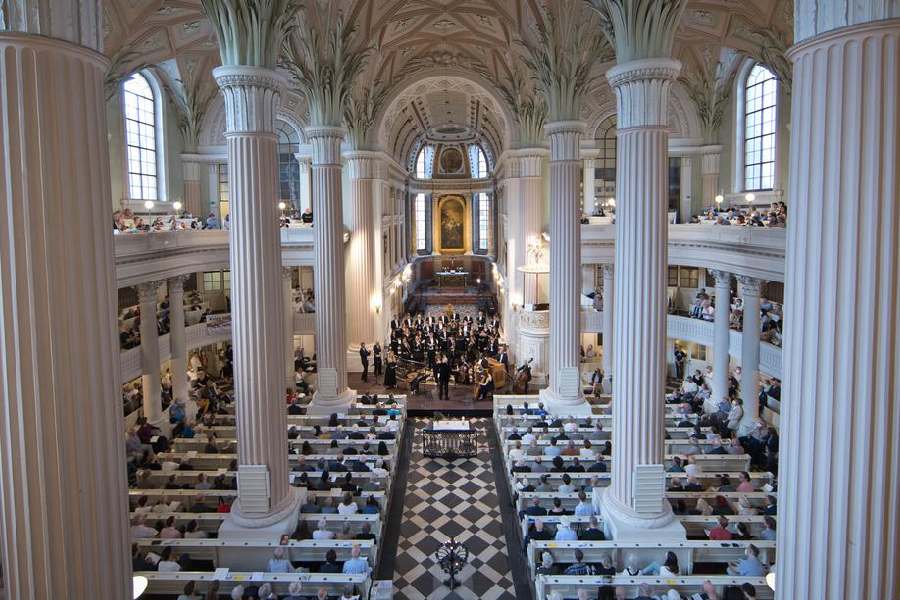
The 'St. John Passion' premiered here in 1724, at St. Nicholas Church in Leipzig Deutsche Welle
Some listeners may have been overwhelmed by Bach's dramatic and at times aggressive music. One can also assume that the congregation was exhausted by the time it was all over — with sermons and other "text interludes," the whole thing lasted almost five hours.
Scaled-down version during COVID
On Good Friday 2020, Leipzig found itself in the middle of the COVID pandemic. A performance of the Passion was out of the question anywhere in the world. Yet the Leipzig Bach Festival made history by developing a unique art project with a small group of creative minds.
At the hour of Jesus' death, at 3 p.m., a chamber music version of the "St. John Passion" was performed at Bach's tomb in the St. Thomas Church. It was streamed live and the global Bach community was invited to sing along. The video received millions of views.
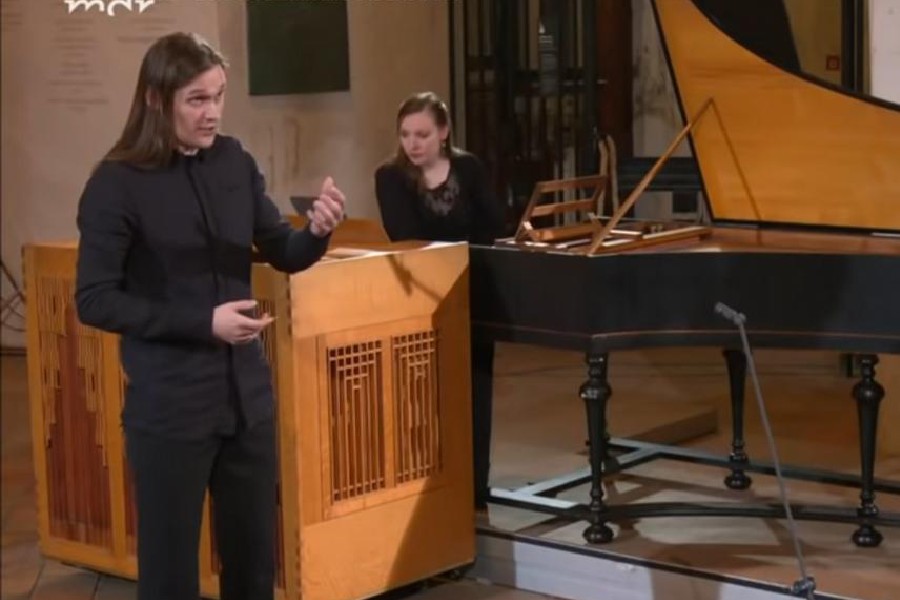
Elina Albach (at the harpsichord) and Icelandic tenor Benedikt Kristjansson performed a scaled-down version of the 'St. John Passion' in April 2020 Deutsche Welle
The focus was on the project's creators: percussionist Philipp Lamprecht, harpsichordist Elina Albach and the charismatic Icelandic tenor Benedikt Kristjansson, who presented Bach's work largely as a one-man show. Steven Walter, the artistic director of the Beethovenfest Bonn, who came up with the idea of the Passion as a trio, also took part. Though Bach's music sometimes lost its colorfulness in this reduced form, the message of the Passion came across all the more clearly.
The successful project has since been performed more than 50 times at various venues. "The 'St. John Passion' is actually still a work that has a lot to tell us, even 300 years after its premiere, and it sounds different every time," Albach told DW. "With every performance, every concert, we have the feeling that we are telling the story anew."
This was also the case during Holy Week in 2022, when images of the massacre of civilians in Bucha, Ukraine shocked the world. "We played the 'St. John Passion' that day," recalled Albach. "And suddenly the recitatives and crucifixion texts sounded like newspaper reports or news that reached us live from Ukraine on the wires, so to speak ..."
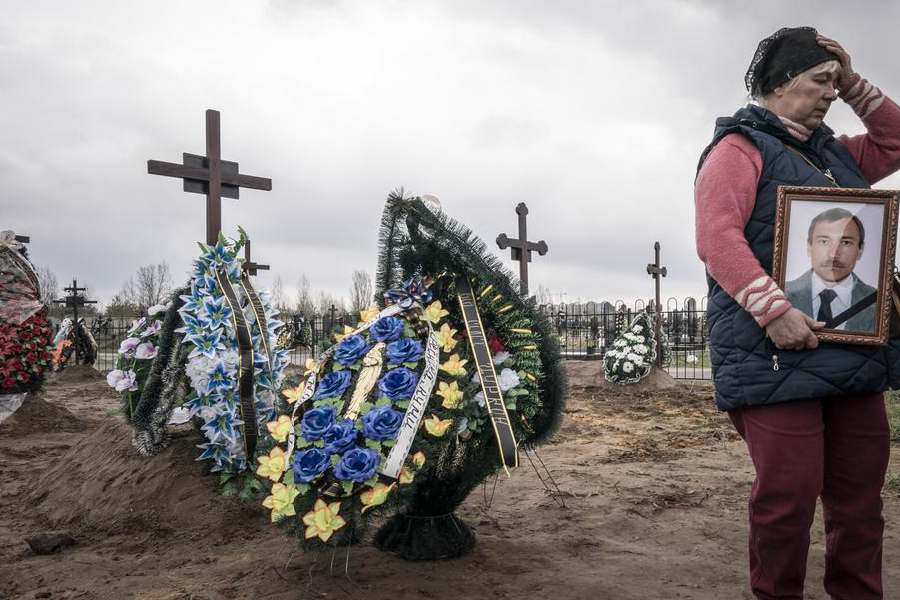
The lament of Bach's 'St. John Passion' still resonates in today's world, amid the events in Ukraine Deutsche Welle
"Bach exposes, Bach accuses, but Bach also comforts," said musicologist Patricia Siegert. "He holds a mirror up to us all, full of thoughtfulness about responsibility, love, life and death."

